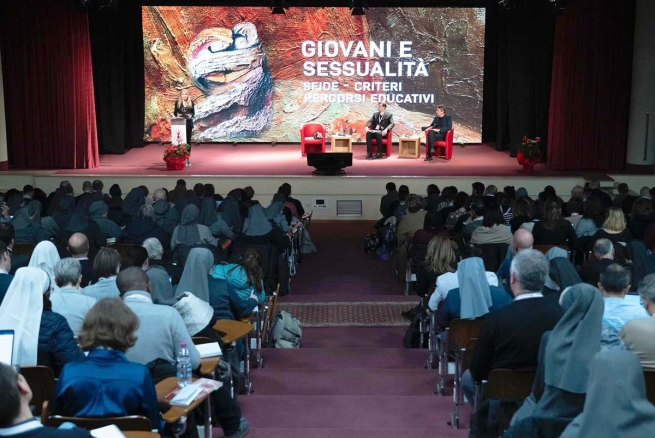The interest and originality of what has been said provide the basis for continuous in-depth studies, especially for those directly involved in pastoral activities. Hence the idea of proposing a kind of handbook with ten indications taken from the quantity of reflections, suggestions and proposals offered by the experts at the conference:
1) Human sexuality is a great mystery that must be approached with humility and with the awareness that there is always an area that we will not be able to fully understand.
2) Changes in affective culture in the West have resulted, among other effects, in great ambivalence. The correct recognition of individual freedom in establishing new bonds and the recognition of the role of women are opposed to realities such as the decline in desire, precociousness, often at high risk, of experiences, the intrusion of new technologies that have led to confusion and ambiguity.
3) Sexuality is not a closed field without contacts and without contamination, but is deeply intertwined with society and culture.
4) The male-female relationship must be updated to highlight the value of difference in a changed social situation. Stereotypes must be set aside to highlight the uniqueness and specific nature of each relationship.
5) It is impossible today to talk about sexuality without considering the whole issue of gender.
6) The body has a symbolic-relational role that is never a permanently acquired fact but a path that every human being is called to follow.
7) Education in affectivity cannot fail to take into account two related phenomena: the collapse in the number of marriages and the now consolidated problematic "normality" of cohabitation.
8) In growth processes, the definition of gender identity is always a dynamic process.
9) The new challenges of technology. Today, technology makes content and experiences accessible in a click that very young people are often unable to understand and manage.
10) Renew educational paths as a narrative of what exists from a perspective capable of valuing the experiences of each individual.
Luciano Moia
Source: Avvenire


